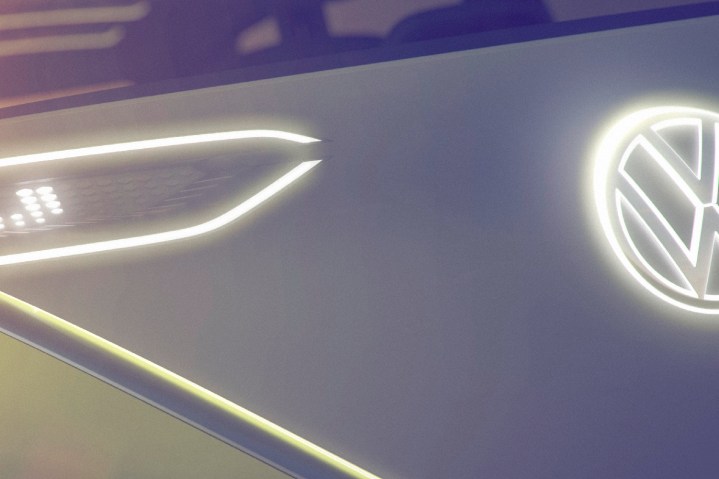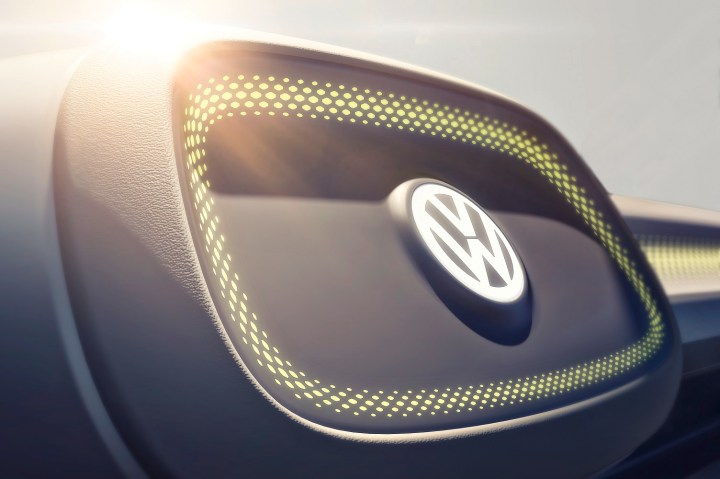
The Wolfsburg-based company refers to the concept as a member of the I.D. family, which indicates it’s a follow-up to the original I.D. that broke cover a few months ago during the Paris Auto Show. It takes the form of a tall, boxy van whose design is heavily inspired by the original, rear-engined Bus introduced in 1950.
The idea of a modern-day Volkswagen Bus isn’t new. The Microbus concept introduced at the 2001 Geneva show and the Budd-e shown earlier this year at the Consumer Electronics Show (CES) both illustrated what the 21st-century Bus could look like. However, the new I.D. concept takes the heritage-laced design a step further by adopting styling cues such as chromed trim on the belt line that ends in a V on the front fascia, and tall quarter windows integrated into the front doors. Designers stopped short of giving the concept a split windshield and round headlights.
The retro treatment is only skin deep. The Bus rides on the same modular MEB platform as the original I.D. concept, and it’s powered by an electric motor mounted over the rear axle. A large, high-capacity battery pack directly integrated into the chassis aims to make range anxiety an issue of the past, though full technical details are still under wraps for the time being.
The I.D. concept was designed with autonomous driving in mind. The steering wheel retracts into the dash at the simple push of the Volkswagen logo, and the driver becomes a passenger as the task of driving is delegated to laser scanners, ultrasonic and radar sensors, and cameras that scope out the road ahead.
More information about Volkswagen’s second I.D. concept will trickle out over the coming weeks. While it’s billed as merely a concept, an earlier report claims a modern-day Bus powered by an electric drivetrain could join the Volkswagen catalog in 2021, about a year after the production version of the original I.D. concept lands in showrooms.
In Detroit, the second I.D. concept will share the spotlight with the new, second-generation Tiguan crossover.
Editors' Recommendations
- Volkswagen ID.GTI concept is another icon reimagined as an EV
- Mercedes-Benz Vision One-Eleven concept looks to the past for inspiration
- 2022 Volkswagen ID. Buzz first drive review: The iconic hippie hauler goes electric
- Twitter just fixed one of its most annoying problems
- Volkswagen’s electric ID.Life concept car doubles as a gaming console





